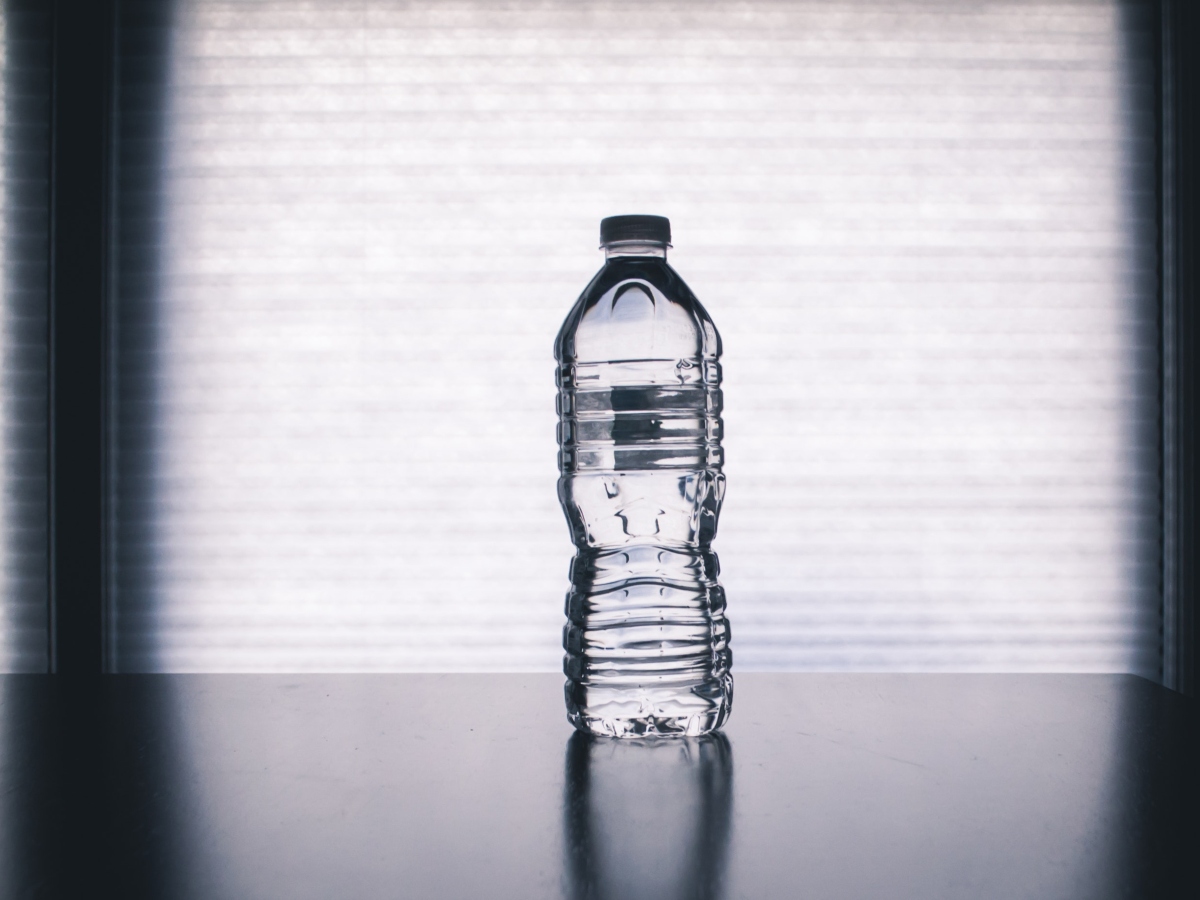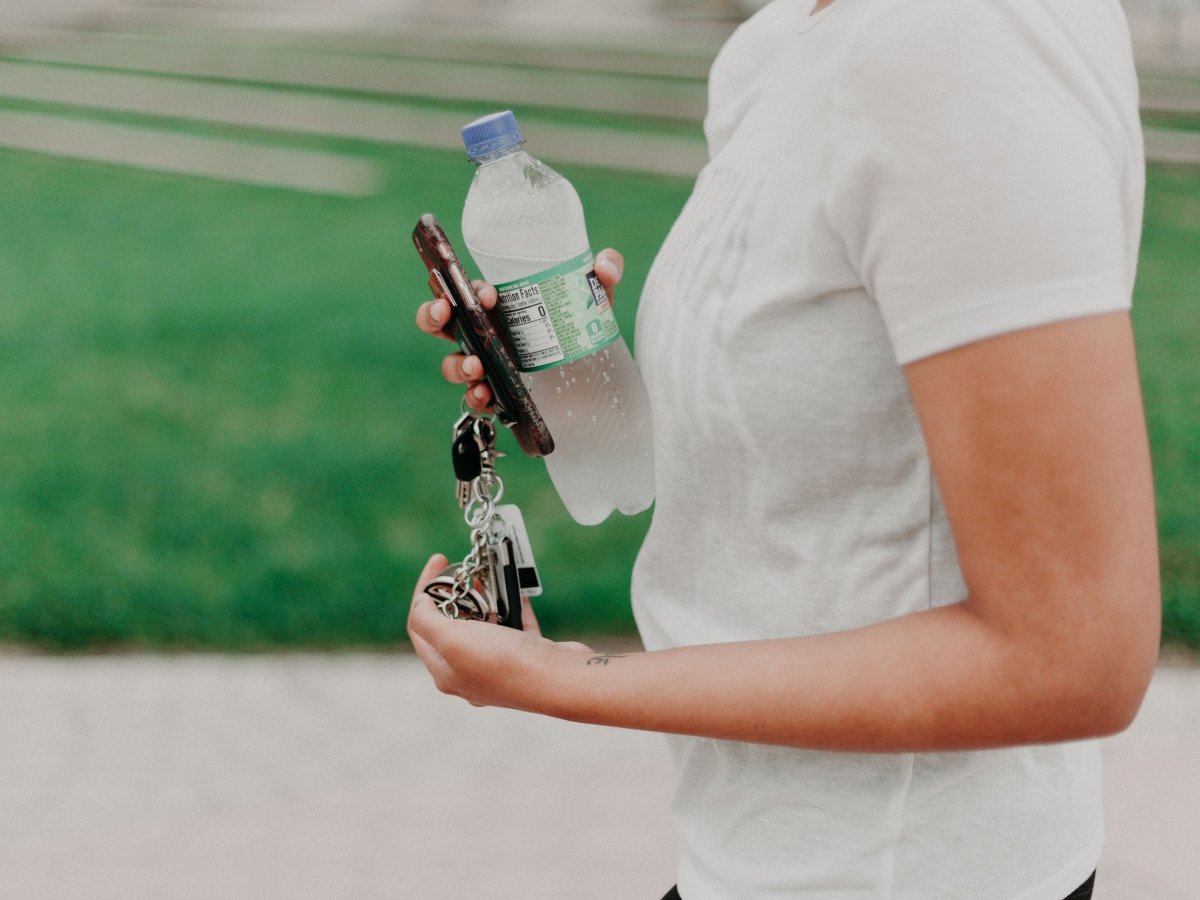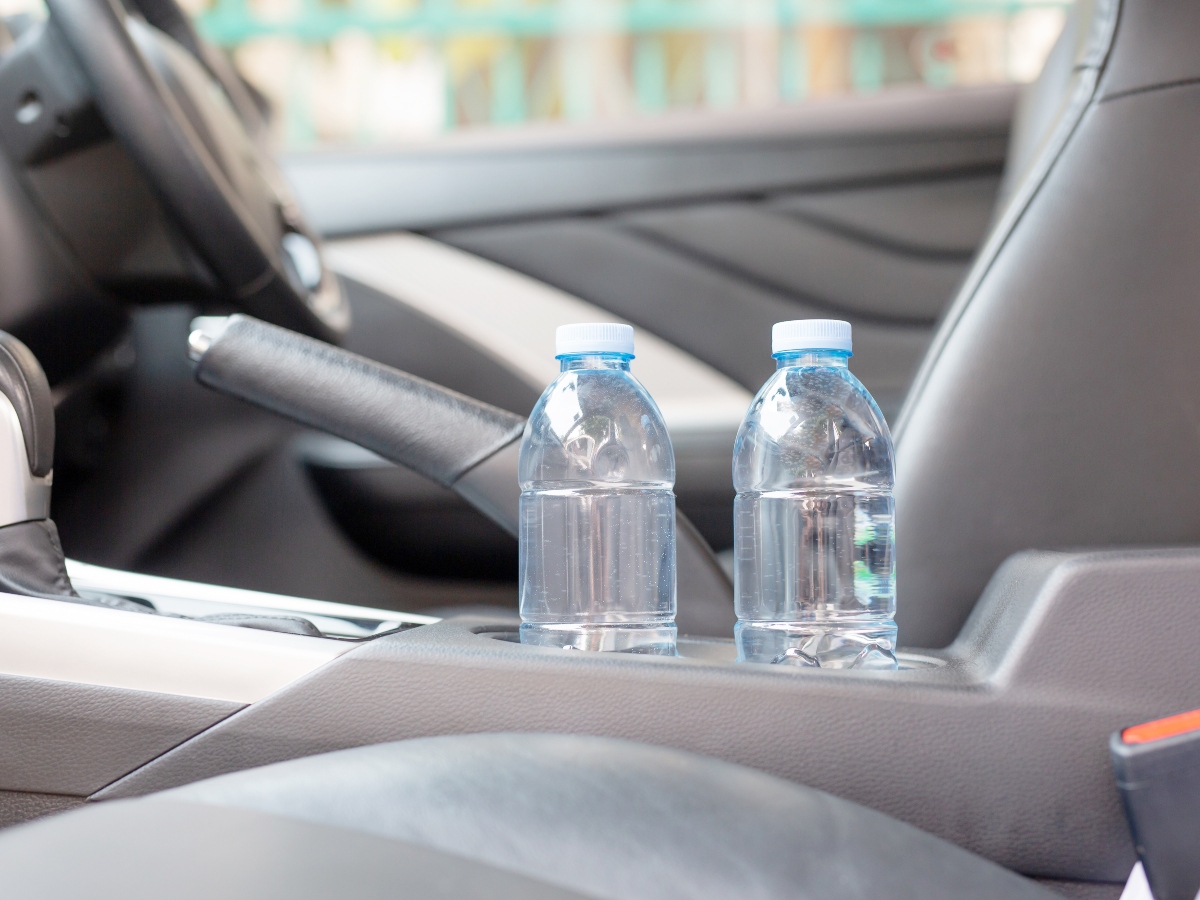Keeping bottled water in a hot car is a convenient way for many to dehydrate in the summer heat. Unbeknown to many, such water isn’t safe as plastics react when exposed to heat, releasing their elements into the water. Meaning your water becomes unsafe to drink. Moreover, such water isn’t also good tasting. So, what exactly happens when you leave that water in your car? This blog delves deeper into what happens and the safety implications.
Specifically, this knowledge-based piece looks at the following:
- What happens to plastics with water at hot temperatures?
- If leaving bottled water in a hot car is safe
- Healthy Alternatives to bottled water
- Health effects of bottled water left in hot cars
What Happens to Plastics with Water in Hot Temperatures
Many water bottle plastics are made from polyester, also known as polyethylene terephthalate, abbreviated as PET or PETE. It’s a lightweight yet strong material used to manufacture packaging materials like water bottles. When plastic gets subjected to high temperatures, it undergoes a chemical process. The plastic morphs as the car’s interior turns into an oven, releasing potentially harmful substances into the water.
According to the National Library of Medicine, plastic water exposed to high temperatures has higher Antimony and Bisphenol A (BPA) levels. The two are crucial chemicals, with Antimony used to make plastics, while BPA gives it its shininess and hardness. These are the possible scenarios when bottled water is left in a hot car:
- Deformation: Plastic bottles are designed to withstand reasonable temperatures. However, extreme heat can cause them to distort, bulge, or even burst. This can result in a messy and potentially dangerous situation.
- Chemical Leaching: As the temperature increases, heat can accelerate the leaching of chemicals from the plastic into the water. Some common plastic components, such as BPA, can be harmful when consumed in high quantities. The process is heightened in hot environments, further increasing the risk.
- Microplastic Contamination: One of the most concerning aspects of leaving bottled water in a hot car is the potential for microplastic contamination. Over time, heat and environmental factors can break down the plastic, releasing tiny plastic particles into the water. These microplastics are not only detrimental to the environment but can also pose health risks when ingested.

So, Is It Safe to Drink Bottled Water Left in a Hot Car
Drinking bottled water left in a hot car is never a good idea. This is due to microplastic contamination, which affects the water’s safety. Many people keep bottled water in a car as this is the most convenient way to stay hydrated. Besides this, others simply forget the water in the car, which they reach out for whenever they’re thirsty. But before you open the bottle and take a sip, remember plastic reacts in hot temperatures, causing contamination. However, the water’s safety depends on the exposure level. The US Food and Drug Authority (FDA) recommends a daily 2.25mg per pound of body weight as the BPA accepted level.
On the other hand, the European Food Safety Authority (EFSA) recommends 0.04 nanograms per kilogram of body weight per day as the tolerable daily intake. However, BPA is considered an essential food additive despite being banned in baby formulas and sippy cups.
Health Effects of Drinking Bottled Water Left in a Hot Car
The risks associated with drinking water from a hot car are not to be taken lightly. Deformed or burst bottles can give us a less-than-refreshing surprise, while chemical leaching introduces a new level of concern. These leached substances, especially BPA, have been linked to various health issues, such as:
Asthma
A 2022 research showed womb and fetal exposure to BPA may lead to children developing asthmatic conditions. The study involved 3,000+ pairs of children and mothers. It concluded by stating there was a high correlation between BPA levels in mothers’ urine and asthma and wheezing in girls. However, it didn’t show the same relationship in boys.
Reproductive Issues
A report by Boston University shows exposure to BPA has a negative effect on ovarian development. This means it raises the risk of infertility and ovulation disorders.
Disruption of Hormones
Although little is known about BPA’s toxicological effects on hormones, it’s believed it can disrupt hormonal balance. One study on male fertility shows a likelihood of men having low sperm count and concentration if exposed to higher BPA levels.
Cancer
This is the most concern for many individuals and has seen lots of research. Exposure to and drinking water with high concentrations of BPA increases the risk of prostate and breast cancer.
Heart Diseases
Cardiovascular diseases have various causes, and exposure to BPA has been linked to these heart-related problems. A 2014 study on the impact of bisphenol A shows exposure to low levels of BPA can cause arrhythmia, atherosclerosis, heart attack, blood pressure, and hypertension. Other health concerns include:
- Low birth weight
- Fetal brain development problems
- Type 2 diabetes

Alternatives to Safely Stay Hydrated
Enough about the doom and gloom; we’re here to find solutions. Consider these healthy alternatives to quench your thirst without worrying about the dangers of drinking bottled water in a hot car.
Reusable Water Bottles: Your Trusty Companion
Reusable water bottles are one of the best alternatives. Consider investing in high-quality options made of durable materials like stainless steel or BPA-free plastic. These bottles help reduce single-use plastic waste and keep your drinks at a refreshing temperature for an extended period, even in hot cars. Also, go for insulated bottles to keep your water cool for hours. This allows you to stay hydrated without compromising taste or safety.
Fruit-Infused Water: Adding Flavorful Refreshment
Are you tired of plain water? Try infusing it with slices of fresh fruits or herbs to add a burst of flavor and a feeling of rejuvenation. Citrus fruits like lemons, limes, oranges provide a zesty kick, while berries and watermelon offer a naturally sweet taste. Alternatively, experiment with cucumber and mint for a cool and refreshing twist. Fuit-infused water provides a tantalizing and hydrating experience eliminating the dependency on bottled water.
Filtered Water: Pure and Peace of Mind
If you’re concerned about the effects of leaving bottled water in a hot car, a portable water filtration system is an ideal option. These devices remove contaminants, such as chlorine, bacteria, heavy metals, and metallic taste, ensuring access to clean and safe drinking water. Whether it’s a pitcher with a built-in filter or a portable water filter straw, filtered water provides peace of mind and a reliable alternative to bottled water.
Bulk Water Dispensers: Convenient and Sustainable
Bulk water dispensers are a game-changer for longer journeys or outdoor adventures. These refillable containers come in various sizes and are designed for easy pouring, helping you stay hydrated without contributing to plastic waste. Simply fill up your reusable bottle from these dispensers and enjoy the convenience and sustainability they provide, all while avoiding any concerns associated with bottled water left in a hot car.

Drinking Fountains and Public Taps: Quenching Thirst Everywhere
Even though not 100% guaranteed, public tap water is safe. Most of these points follow the EPA regulations, which demand adherence to certain safety thresholds. In fact, the Centers for Disease Control and Prevention (CDC) reports the US has one of the safest tap drinking water.
So, don’t overlook the drinking fountains and public taps in public spaces. These water sources are often tested and regulated, offering a convenient, cost-effective, and safe option for staying hydrated on the go. Nevertheless, remember to bring your reusable bottle and fill it up whenever you spot one.
Healthy and Safe Water Solutions from ONIT Home
Leaving bottled water in a hot car has detrimental consequences, from plastic deformation and chemical leaching to the alarming risk of microplastic contamination. The potential health hazards associated with consuming water subjected to extreme heat highlight the importance of proper storage and caution. Remember, your health and well-being should always take priority. However, ONIT Home is the go-to water filtration expert in all these options. We care about your well-being and provide products and technology tailored to your needs. Our water filtration system ensures you:
- Remove contaminants from your water
- Ditch bottled water and its adverse health effects
- Reduce tea and wear from your plumbing system
Our water filtration solutions ensure safety and quality. Additionally, we have a dedicated and experienced crew guided by professionalism and customer satisfaction. Whether you need a whole house filtration system, a water softener system, or any other system, we are the company to call.
We customize our services to fit your needs. We will start with a free water test to determine present contaminants and advise you on the best action plan. For this free water test, inquiry, or any question, contact us at 1-833-433-0331. You can also fill out our contact form, and we will call you back with a no-obligation free water quote. So take action today and explore the reliable water solutions at ONIT Home.



